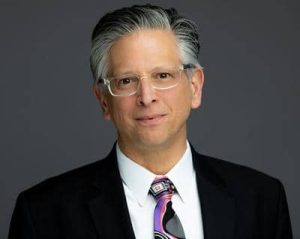The authors of a 2018 nanoscience paper have retracted the article after three doctoral students highlighted a problem with its methods.
The 2018 study attracted media attention for suggesting that nanospears, microscopic structures similar to splinters, may be useful in delivering gene therapies.
Paul Weiss, a nanoscientist and a corresponding author of the paper, announced the retraction on Twitter April 5, the same day the retraction notice appeared. Weiss holds several academic positions, including Presidential Chair of Chemistry and Distinguished Professor of Chemistry and Biochemistry at the University of California, Los Angeles (UCLA).
The study, “Precision-Guided Nanospears for Targeted and High-Throughput Intracellular Gene Delivery,” was published in ACS Nano, of which Weiss was a founding editor-in-chief. It has been cited 80 times, according to Clarivate’s Web of Science.
The retraction notice stated:
The authors retract this article (DOI: 10.1021/acsnano.8b00763) as the fluorescence method by which the transfection efficiency was determined is unreliable and incorrect and led to greatly overestimated values of efficiency. The original data are also no longer available and cannot be verified.
We thank Drs. Jason Belling, Alexandra Mendoza, and Natcha Wattanatorn for bringing the measurement issue to our attention.
We reached out to Xiaodong Chen, the journal’s editor-in-chief and a professor at Nanyang Technological University in Singapore, for comment and heard back from an ACS spokesperson, who said:
The issue you mention below was an author-requested retraction. For reference, we follow COPE’s retraction guidelines in such situations.
The three scientists the notice credited for flagging the error were PhD students at the time. One was an author of the original study, Weiss and his co-authors Hsian-Rong Tseng and Steven J. Jonas, both also at UCLA, told Retraction Watch in a joint email. All have since earned their degrees.
We contacted Belling, Mendoza, and Wattanatorn, but have not heard back.
Weiss, Tseng, and Jonas said the three then-students flagged the error about a month after the paper was initially published, preventing it from creeping into other papers. They said they had planned to repeat the experiments properly, but “the equipment and people were not available,” so they retracted the paper. They added:
We plan to repeat these experiments with the correct measurements to determine accurate efficiencies.
We did a thorough search for the original data and could not find it as, at the time, the data on the microscope used were not archived. We have addressed this issue throughout our laboratory.
We very much appreciate the support the community has shown since we published and publicized this retraction.
After Weiss posted the retraction note on Twitter, several scientists tweeted in support.
Sebastien Vidal, an organic chemist at the French National Center for Scientific Research, wrote on Twitter:
Jodie Lutkenhaus, a chemical engineer at Texas A&M University, wrote:
Christy Landes, a physical chemist at Rice University in Houston, Texas, tweeted:
Like Retraction Watch? You can make a tax-deductible contribution to support our work, follow us on Twitter, like us on Facebook, add us to your RSS reader, or subscribe to our daily digest. If you find a retraction that’s not in our database, you can let us know here. For comments or feedback, email us at [email protected].

It is a bit disappointing that the authors did not retain data for a 2018 NSF and NIH-funded publication.
“We gratefully acknowledge support from the National Science Foundation Grant #CMMI-1636136. H.R.T. thanks the support from National Institutes of Health Grant
#R21EB016270.”
200%
He said it was some lab specific policy that they changed
This retraction of your paper does not downgrade your reputation as one of top class world class scientists. On the contrary, it shows that being a scientist you are not always right and that adds to your great reputation. Good luck and God bless you!
It shows that as humans, we still have limitations and as such we can error. Well done Prof Weiss!
It is wonderful when egos don’t get in the way of doing science.